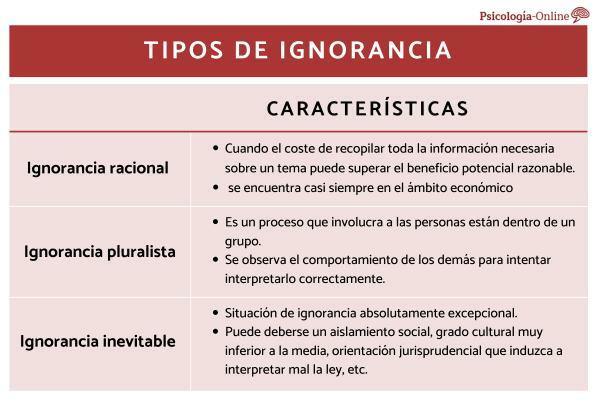
As we live, we are subjected to a wide variety of activities that test our way of reacting to them. Daily life is full of stimuli that produce anxiety, fear, frustration and anger. Whether it's at work, a social gathering, a family lunch, or an exam, we find ourselves surrounded by demands from others and it can be difficult to deal with them.
In many cases, human beings find ways to alleviate the emotions produced by these types of situations that can affect performance in any area of life. However, there are people who have difficulties in managing emotions in social life and this can have negative consequences. Having information on this subject can allow us to deal with it and find some kind of solution. In this Psychology-Online article, we will provide you with information about the fear of losing control, what is it, what are its symptoms, causes and treatment.
Index
- What is the fear of losing control
- Symptoms of the fear of losing control
- Causes of the fear of losing control
- Treating the fear of losing control
What is the fear of losing control.
When we refer to the fear of losing control, we are talking about an anxiety disorder that consists of the avoidance of situations that could lead to loss of control of a certain situation. In addition, this fear is related to the presence of panic attacks that influence the domain of anxiety. This can cause problems for the person suffering from this disorder, since their social life can be greatly affected.
According to the DSM-V[1], this anxiety disorder is called agoraphobia. Next, we will display the main characteristics of the fear of losing control:
- Intense fear or anxiety about different following situations: fear of activities such as using public transport, being in open spaces, being in closed spaces, being in the middle of a large number of people or being alone outside the home
- Avoidance of these situations: has its justification in the fact that the person would not have tools to master these possible moments, for example, falling in public. Therefore, the aforementioned situations are avoided with great intensity.
- The fear or anxiety is greater than the real danger that represent the situations.
- The anxiety lasts six months or more.
- Deterioration of interpersonal relationships: fear, anxiety and avoidance produce a deterioration in social, work and family relationships.
Symptoms of the fear of losing control.
There are symptoms that appear in people who suffer from this fear of losing control that we have described, which are within the criteria implemented by the DSM-V to diagnose this condition clinical. However, there are some physical manifestations that occur in these cases. Let's see what are the symptoms of fear of losing and what should be taken into account:
- Incrise of cardiac frecuency.
- Dizziness
- Sweating
- Fear of death Discover the symptoms, causes and treatment in this article about the affraid to die.
- Difficulty in breathing.
- Chest pain.
- Sudden chills
- Stomach ache.
- Diarrhea.
- Sickness.
It should be noted that these symptoms manifest themselves in social situations in which there is a fear of exposure. Even so, the existence of any of these symptoms does not necessarily represent a fear of losing control. East diagnosis must be made by a healthcare professional, who will be in charge of indicating an individualized and adequate treatment for each patient.
Causes of the fear of losing control.
At a general level, understanding the causes that can lead to fear of losing control will allow a better approach to the problem. So, we are going to name the main causes associated with this anxiety disorder:
- Panic attacks: a person who has experienced a panic attack will have felt the sensation that she was going to die in a certain situation. When this occurs in the presence of other people, this fear can persist and appear in many situations in everyday life.
- Unpleasant experiences: it may happen that we have gone through situations that have caused us great fear, anxiety and / or stress. When we don't have the tools to manage these emotions, they may reappear throughout life. In this article, we tell you how to manage emotions.
- Duel: the death of a loved one or having undergone a very significant loss in life can be a trigger for long-term fears.
Treatment of the fear of losing control.
Fortunately, the fear of losing control can be treated. Currently, there are some treatments that can help overcome the fear of losing control. We see them below.
Psychotherapies
Psychological therapy allows us to have more tools to face our fears. On the one hand, short-term therapies emphasize problem solving through a series of exercises that the patient must perform. Among the most prominent is the cognitive behavioral therapy, which tries gradually exposing the patient to fearful situations to modify your thoughts, emotions and beliefs.
On the other hand, there are longer therapies in the time that look for the origin of the patient's conflict. This allows the patient to know the reason for his problem and adopt a different way of dealing with situations. The best known extensive therapy with these criteria is the psychoanalysis.
Medication
Another way to treat the fear of losing control is through the use of psychiatric medications that produce modifications in the neural connections of the cerebral cortex. The purpose of the medication is to generate a change in the processing of information from the environment to alter the emotions that arise in certain situations.
In the event that the medication is convenient, the supply of any psychotropic drug should be indicated by a health professional who controls the necessary dose for each patient.
This article is merely informative, in Psychology-Online we do not have the power to make a diagnosis or recommend a treatment. We invite you to go to a psychologist to treat your particular case.
If you want to read more articles similar to Fear of Losing Control: What It Is, Symptoms, Causes and Treatment, we recommend that you enter our category of Clinical psychology.
References
- American Psychiatric Association. Diagnostic and Statistical Manual of Mental Disorders, 5th edition. Arlington: Editorial Médica Panamericana.
Bibliography
- Bados López, A. (2005). Agoraphobia and panic. University of Barcelona, Faculty of Psychology. Departament de Personality, Avaluació i Tractaments Psicológica.
- Gómez Ayala, A. (2012). Anxiety disorders. Agoraphobia and panic attack. Professional Pharmacy Magazine, 26 (6), 32-39.
Fear of Losing Control: What It Is, Symptoms, Causes and Treatment


